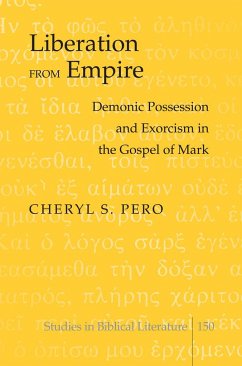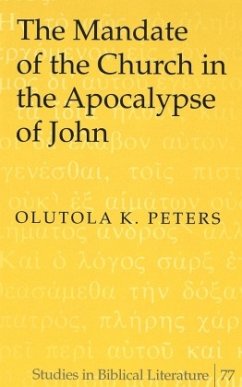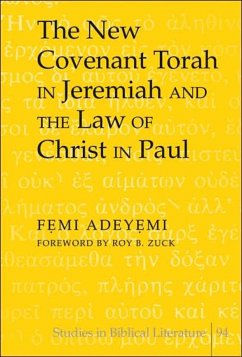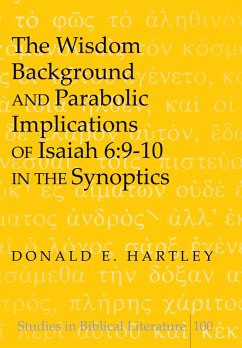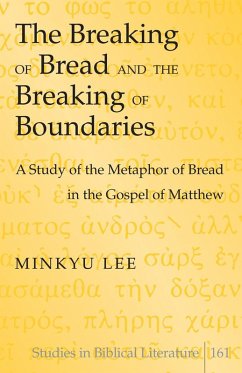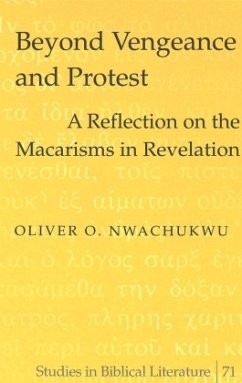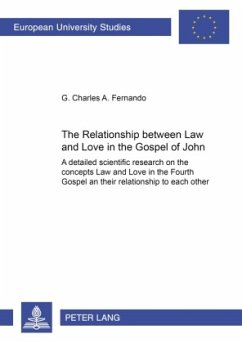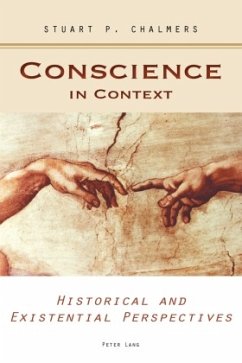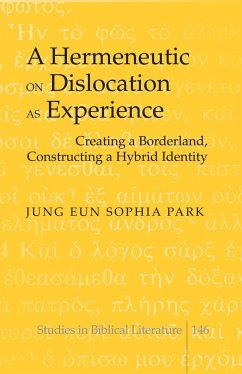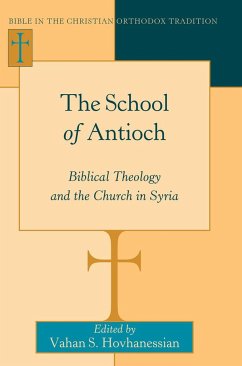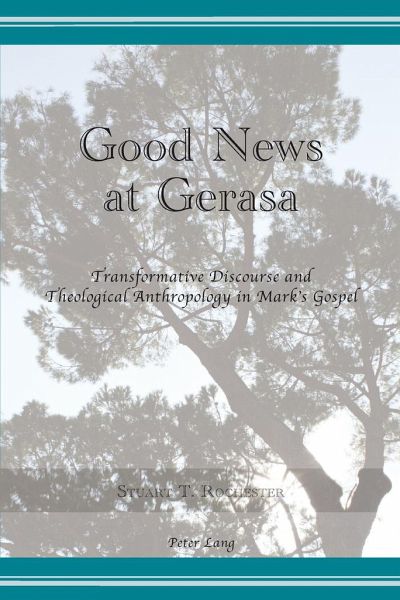
Good News at Gerasa
Transformative Discourse and Theological Anthropology in Mark's Gospel
Versandkostenfrei!
Versandfertig in 6-10 Tagen
81,70 €
inkl. MwSt.

PAYBACK Punkte
0 °P sammeln!
This book investigates Mark's Gospel as an example of a 'transformative discourse' that uses many interwoven rhetorical elements to move its audience toward change. A detailed exegesis of the Gerasene demoniac story (Mark 5:1-20) in its literary setting highlights its significant contribution to this transformative discourse. What happens to the demoniac - release from bondage to evil, and entrance into a new perceptual world - typifies the dynamics of the Gospel's theological anthropology and can be regarded as somewhat paradigmatic of human transformation in the context of Christian disciple...
This book investigates Mark's Gospel as an example of a 'transformative discourse' that uses many interwoven rhetorical elements to move its audience toward change. A detailed exegesis of the Gerasene demoniac story (Mark 5:1-20) in its literary setting highlights its significant contribution to this transformative discourse. What happens to the demoniac - release from bondage to evil, and entrance into a new perceptual world - typifies the dynamics of the Gospel's theological anthropology and can be regarded as somewhat paradigmatic of human transformation in the context of Christian discipleship.
The heart of the book is its overview of Mark's vision of humanity. The language and narrative rhetoric of Mark's Gospel express ideas about human nature and human destiny that are strongly predicated on the new eschatological perspective of Jesus. Despite the fundamental distortion of humankind, the possibility of radical transformation is clear. The book highlights the transformative potential of the Gospel, demonstrating the rhetorical means by which Mark promotes the transformation of his audience and showing how this rhetoric is linked to a dynamic eschatological anthropology.
The heart of the book is its overview of Mark's vision of humanity. The language and narrative rhetoric of Mark's Gospel express ideas about human nature and human destiny that are strongly predicated on the new eschatological perspective of Jesus. Despite the fundamental distortion of humankind, the possibility of radical transformation is clear. The book highlights the transformative potential of the Gospel, demonstrating the rhetorical means by which Mark promotes the transformation of his audience and showing how this rhetoric is linked to a dynamic eschatological anthropology.



